We take a look at the progression of the Honda Civic’s MPG over the course of its life and break it down here.
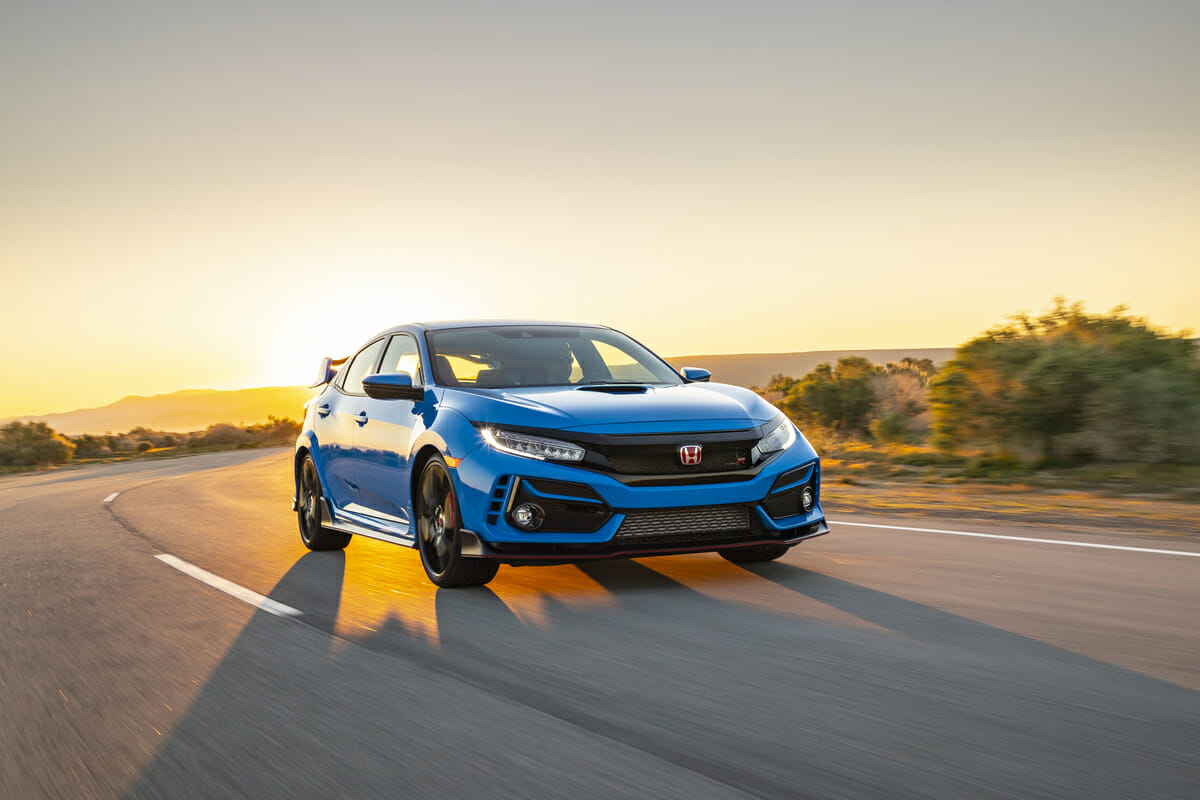
The Honda Civic has been at the forefront of better mpg since its 1972 U.S. release, boasting an impressive 39 miles per gallon on highways and 27 in the city. How do these fuel mileage numbers compare to a modern 2021 Civic? They’re not actually a whole lot better at first glance, with an average of 32 mpg in the city and 42 at highway speeds.
But the Civic also grew more than three feet in length, almost a foot in width, and nearly doubled in weight in its 50-year run. To accommodate the Civics natural evolution, Honda had to not only build a more efficient engine, but a more potent one as well.
Below we will cover the history of the Honda Civic and review a few noteworthy technological advancements along the way that made it the renowned fuel sipper it is today.
CVCC Engine: Fuel-efficient Power
There’s a common misconception about the famous CVCC engine that it’s some sort of origin story for the Honda Civic, but what it actually stands for is much more interesting. CVCC or “compound vortex controlled combustion” engine was the Japanese car company’s attempt at innovation the world had never seen. Japan was dealing with similar emissions problems as the U.S. during the ’70s.
The Honda Motor company’s founder, Soichiro Honda, created a research department to look into and understand emissions as a means to finding a simple solution. Catalytic converters at the time were bulky and inefficient, so Honda was looking for something that would work without the need for a new emissions device.
Even the name “compound vortex controlled combustion” was kept intentionally vague as the patents weren’t quite solidified for Honda. The announcement of this technology before it was ready was a strategic move by founder Soichiro to motivate employees to feel the pressure of the project. What they came up with was incredible for the time.
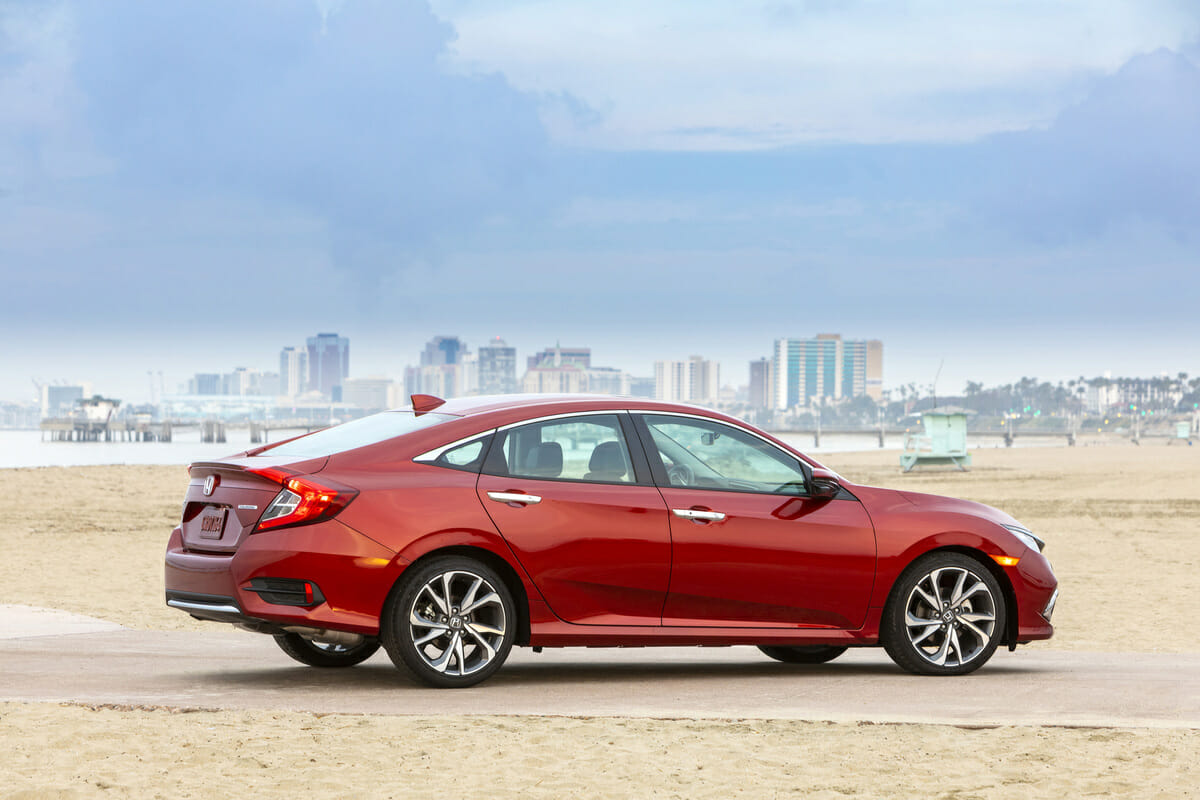
How Does CVCC Work?
The CVCC’s fuel system was designed to run very lean and beyond the sweet-spot 14.7:1 air/fuel mixture seen in the majority of cars. When you run any engine considerably lean, you have less opportunity for unburned fuel coming out as a pollutant.
Because the engine burns all the fuel up in the combustion stroke of a four-stroke engine. The issue then becomes spark, because now you’ve got far too much air mixing with your small dose of fuel which makes everything harder to light.
While Honda attempted to fix their issues with experimental spark plugs and intake ports that generate higher swirls of air, it ultimately continued to fail. The further brainstorming revealed an idea based on existing diesel technology, where there would be a pre-chamber that ignited the air/fuel mixture.
In this smaller chamber, a flame would start and finally ignite the remaining larger mixture in the cylinder. The result was tremendous. The emissions were clean enough in the early Civics that they were able to avoid the use of expensive catalytic converters altogether.
This led to even cheaper production costs and ultimately, Honda had the top EPA fuel economy ratings from 1975-1978 for their first-generation Honda Civics. In the end, the emissions requirements tightened even more, which required Honda to join their competitors using catalytic converters.
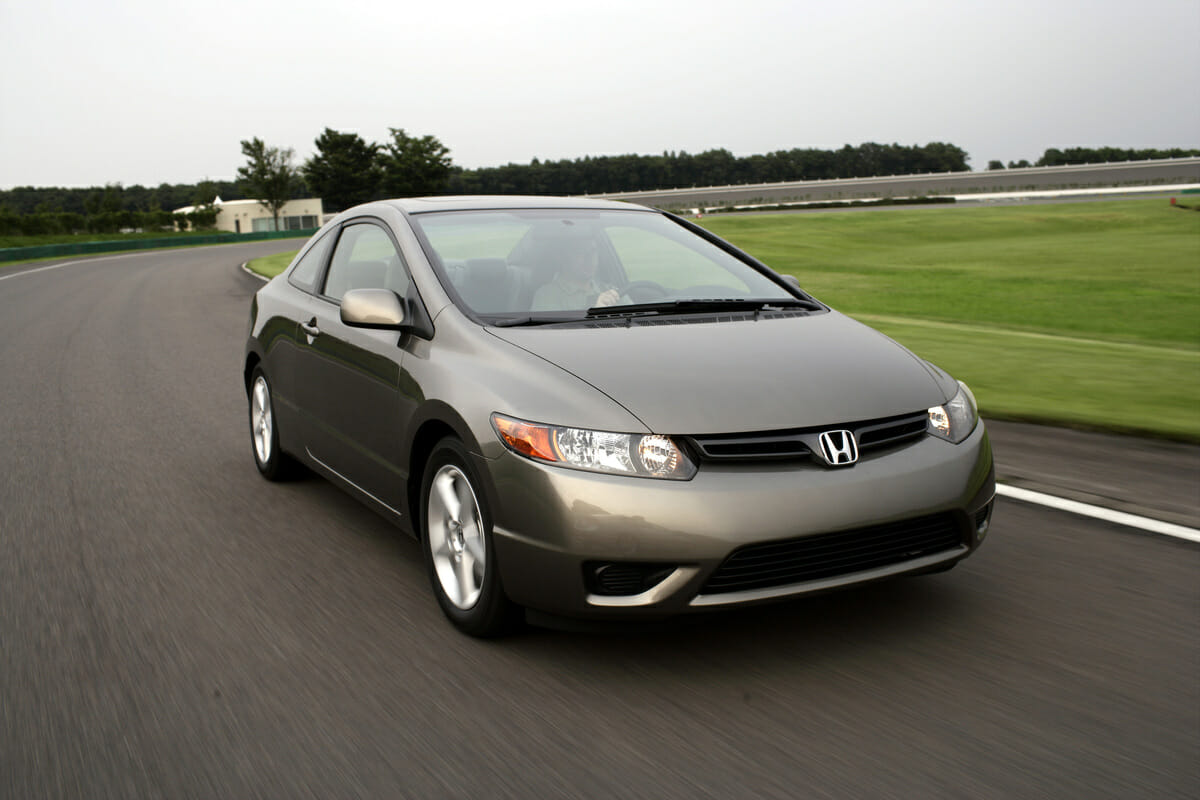
Honda Civic Engines: Lean-burn System Technology
By 1979, Honda had continued to dial in the CVCC engine they were employing in their Civics. With every trim-level using a CVCC, Honda added a third valve per cylinder which paved the road to lean-burn system technology. This allowed Honda to increase the air/fuel mixture as high as 22:1 by controlling where the fuel and air circulated within the cylinder at what time.
Combined with the pre-chamber we explained earlier, the engine was able to achieve as much as 33 mpg in the city and 45 mpg on the highway –– an incredible feat for the late-’70s.
The 1980s brought new technologies for Honda and in 1983, Every Breath You Take by The Police was on every radio station in America. Honda would finally introduce its long-running and well-known D-Series engine along with a new 1.5L CVCC engine.
At its peak, the 1986 Honda Civic Coupe HF (high fuel economy) boasted 52 city mpg and 57 highway mpg from its new and improved 1.5L CVCC engine. In 2008, revised testing would lower the actual number to a respectable 42 city and 51 highway. The years of the “breadbox” Civic would come to a close and open the door for a new shape.
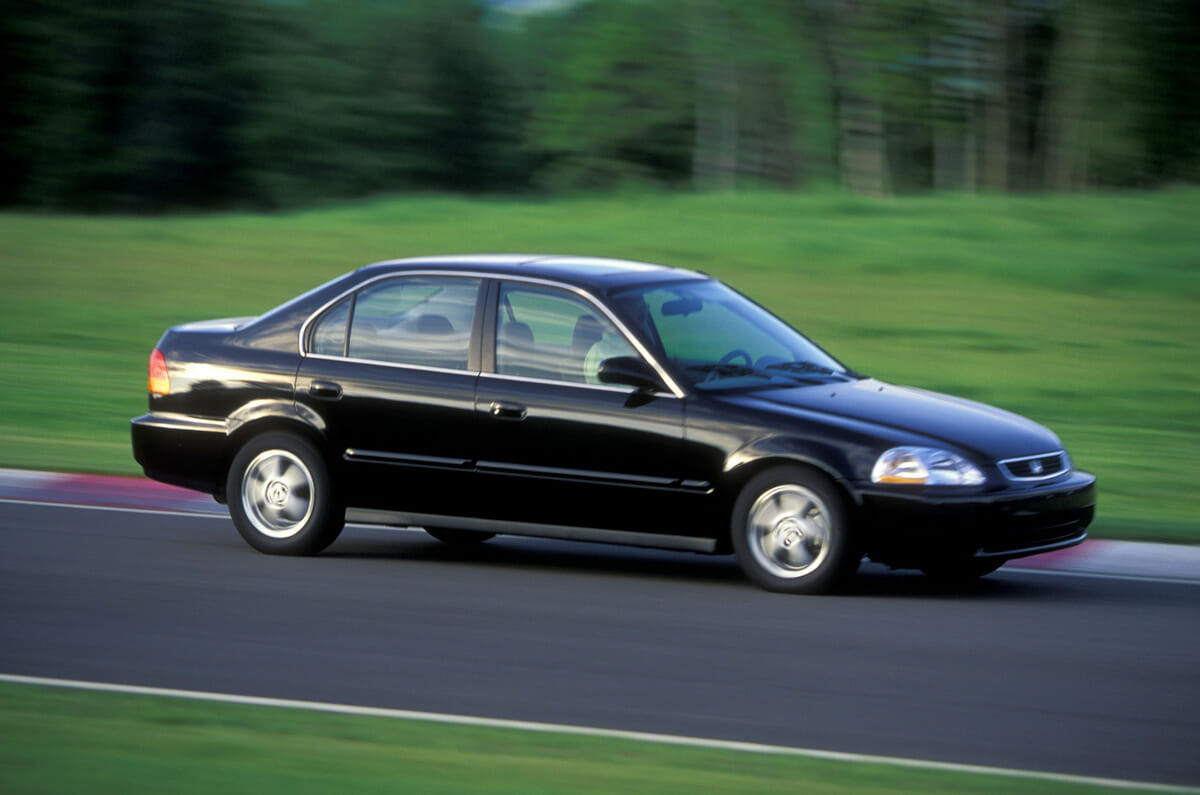
Honda Civic’s Redesign & the VTEC Kick in
The redesign of the Civic in 1987 for the 1988 model year was a totally new and drastic direction. With bigger interior space, a lower profile overall, and continued industry-leading miles per gallon, it made sense that consumers would give the Civic a look.
Honda also released the famous B18A Dual Overhead Cam VTEC engine –– the first variable valve timing and electronic lift control (VTEC) engine from Honda. This B-Series platform would be used in various Hondas other than the Civic until the early 2000s.
Honda saw fuel economies in the 50s from its High Fuel Economy Civics and 40s for other applications. More sporty models like the Honda Civic Si suffered, with a combined fuel economy of 23 miles per gallon –– a small cost for gear-shifting fun.
The redesign for the early-’90s Civic was not in vain. Its fuel economy for the VX saw a combined fuel economy of 51 mpg.
In September 1991, Honda continued to compound on its own tech and push the limit even further with a focus on a more aerodynamic body style for the Civic. The redesign for the early-’90s model was not in vain, as the Civic’s fuel economy for the VX hatchback (the HF replacement) saw a combined fuel economy of 51 miles per gallon.
While the D15 engines were sipping gas, though, the D16Z6 VTEC was gulping it down in the Si model, a common theme for fun. The Si would achieve only a 32 combined mpg –– despite having a 9,000 rpm tachometer and a redline of 7200 rpms. Honda wasn’t only focusing on fuel economy, but combining decent fuel economy and performance as well.
By the time the mid-’90s rolled around for Honda, they had made it clear that they’re building cars a bit differently. With eight different trim levels–including the HX, which was designed for higher fuel efficiency, and the GX that ran on natural gas–it was clear that Honda was trying every angle they could to squeeze a few more miles per gallon out of their platform.
In hindsight, it’s truly incredible what they were able to accomplish. For the fuel-saver HX, it came in a coupe only, it was the only model in this generation with a CVT (continuously variable transmission), and it managed a notable 33 mpg in the city and 38 mpg on the highway.
New Lows, New Highs
Unfortunately, Honda dealt with the most recalls they’ve ever had for any generation Civic in the seventh-generation model year. Most notably, transmission issues not only plagued the Civics but spread into other models too, including the Honda Accord.
There was a major failure with the automatic transmission’s torque converter, which manages the connection between your engine and transmission. In 2004, Honda settled a class-action lawsuit and issued recalls for previous model-year Civics, but none of the recalls included the 2001 model-year –– leaving owners to fend for themselves.
On the flipside, the seventh-generation Honda is also home to the first ever Civic Hybrid, a bold step forward executed at precisely the right moment. Keep in mind that at the time the Toyota Prius was king in the EV market, so when the Civic Hybrid tied it for third on the American Council for an Energy Efficient Economy’s top “Greenest Vehicles” list, all eyes were on the Civic.
Using features like cylinder deactivation, low-resistance tires, a CVT transmission, and engine stop-start, the 2003 Civic Hybrid earned a remarkable 46 mpg on city streets and 51 at highway speeds.
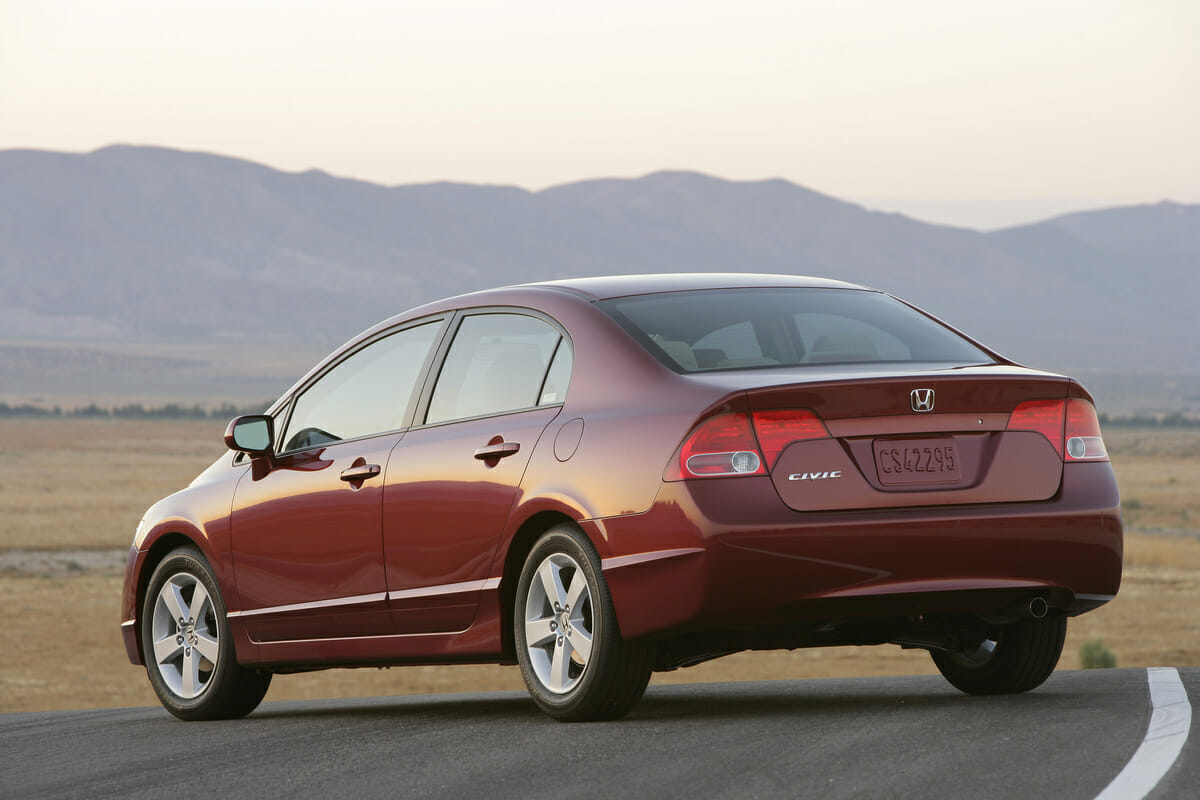
Honda Bounces Back with Eighth-gen. Civic
With transmission issues continuing through the majority of the seventh-gen model cycle and the looming class-action lawsuit, Honda needed a win and to put some distance between itself and the black mark of unreliability. The eighth-generation was proof that they didn’t give up.
Automatic transmissions caught up to the manuals in terms of miles per gallon, and some trim levels even surpassed with a respectable 35 mpg combined. Launched for this model cycle, the R16A engine achieved 140 reliable and smooth-shifting horsepower.
Honda’s Civic Si for the eighth generation made 197 horsepower from their K20Z3 engine and was only able to accomplish 32 mpg on the highway. This barely beat the more economical Civic’s city mpg numbers, proving that the penalty for performance would continue.
Despite history, the Civic sales for the 2006-2010 Civics were strong. Honda was back on top.
Hondas Civic Sales
By the end of the 2011 model year, the Honda Civic took a backseat to some of Honda’s other vehicles, and Americans were either choosing a truck, a Toyota Camry, or an SUV of some kind.
In fact, the Honda Civic was the 12th most sold vehicle in the U.S. behind trucks, SUVs, and Japanese mid-sized cars, including Honda’s own Accord. The Civic had a max achievable mpg of 26 city/34 highway, which wasn’t their best year.
With over 1.5 million Civics sold in the ninth-generation model cycle, something big was coming for the Civic brand. Only this time, it would be something totally different.
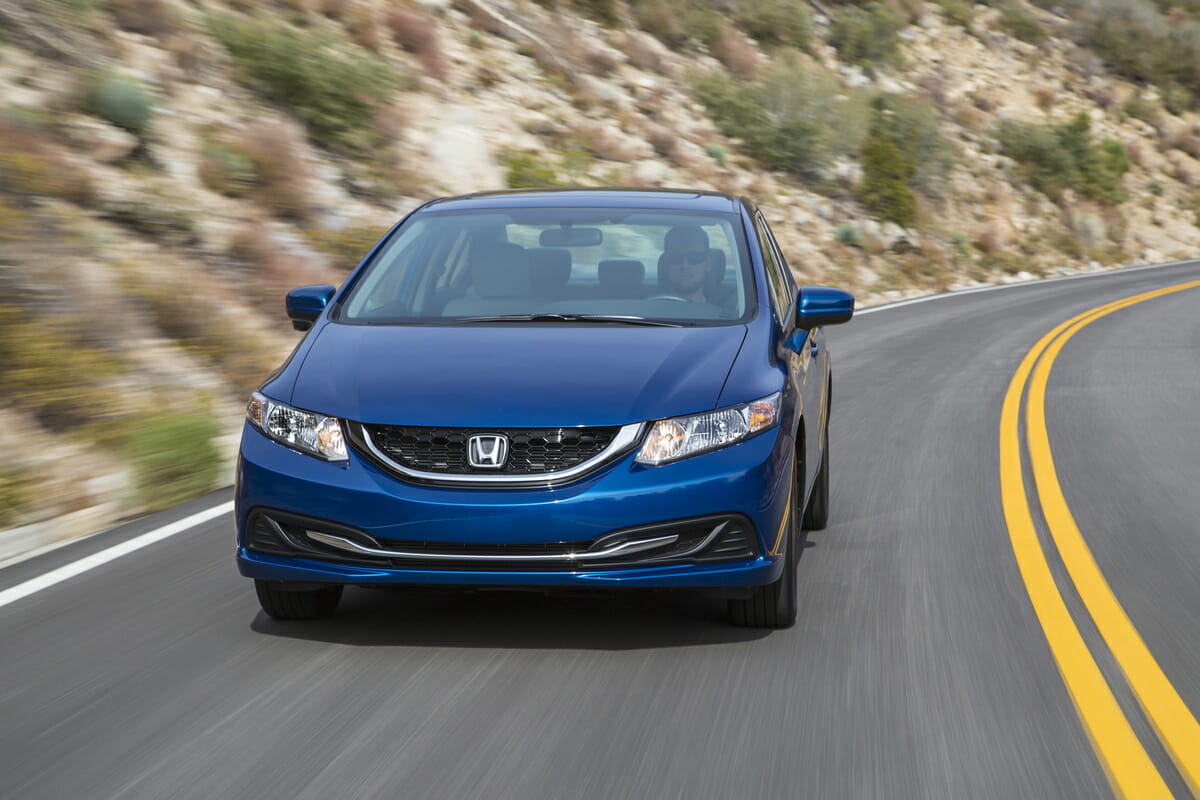
Honda Civic’s Redesign
In 2015, Honda released a completely and aggressively redesigned Civic that looked completely different from anything they’d done before. This global redesign came with better-quality steel construction, a lower center of gravity, “c”-shaped taillights, and LED DRLs that set off the styling in a new and fresh way. The Civic was now achieving consistency across all trims of 31 mpg in the city and 42 mpg on the highway.
The Si variant has a 1.5L turbocharged I4 able to achieve a combined 32 miles per gallon –– a huge boost in fuel economy over its predecessor. Also in the 10nth-generation goodies release, the Civic Type-R’s tire patches graced U.S. soil for the first time with a 2.0L I4 with a turbo cranking out 308 horsepower and achieving a combined 25 miles per gallon.
The Honda Civic has come a long way from its CVCC engine. During the ’70s, Honda adopted the slogan “We Make it Simpler” as a direct approach to elegant solutions. It has shown in their history, and it shows in their current products, the Civic included.
Honda continues to make things simpler and prove their place at the table of auto manufacturers. The radical redesign of the Civic over the years wasn’t just marketing games, it was backed with engine technology that keeps them on the list of frontrunners for fuel economy, styling, and recognition.
We are excited to see where Honda takes the Civic next and we’ll be here to see how it stacks up against the lineage of Civics past.
Photos: Honda
